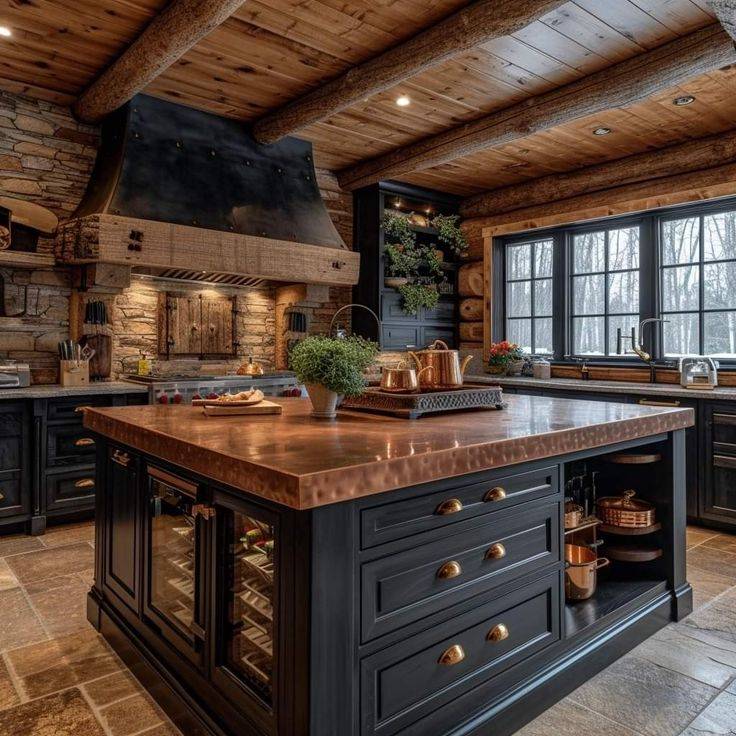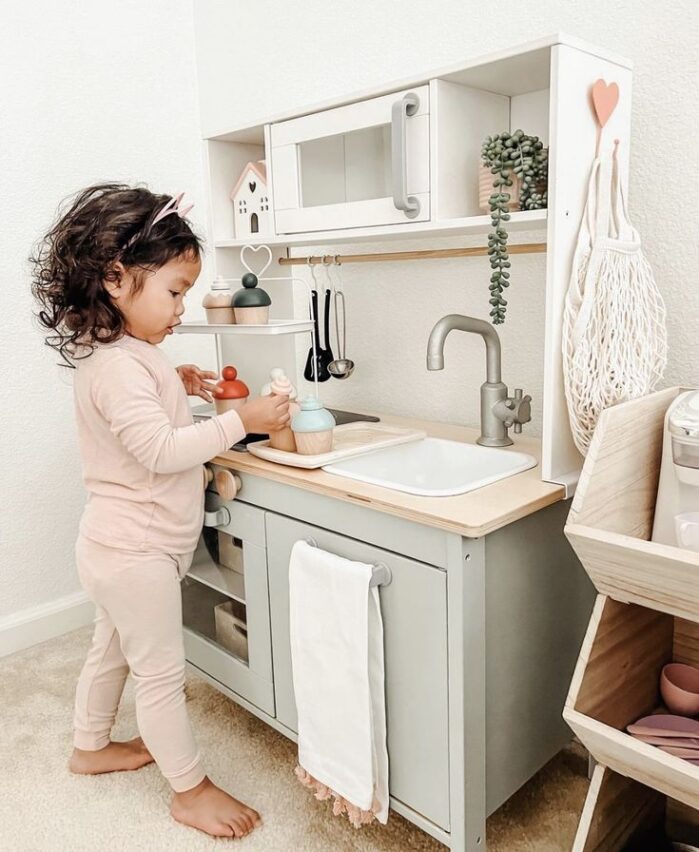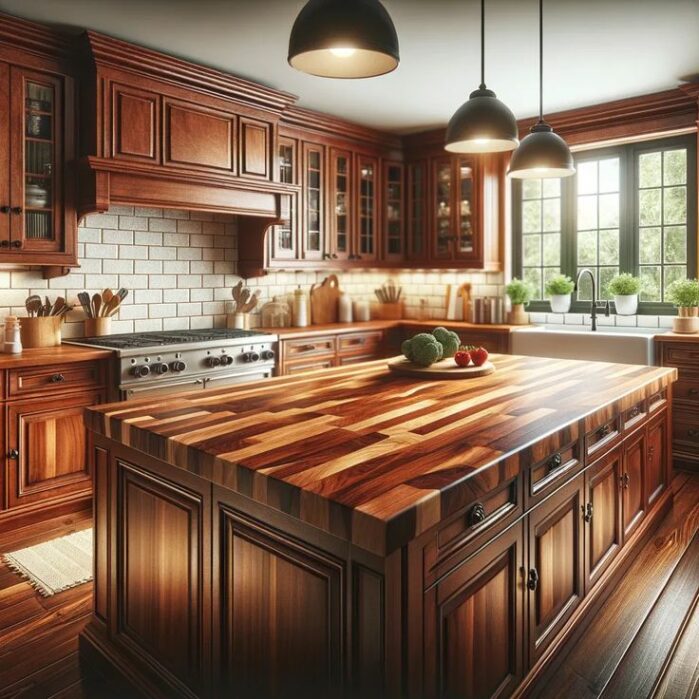Kitchen counter tops are truly the heart of any kitchen. They give you space to cook and can really add some style. Picking the right counter top can totally change how your kitchen looks and feels. But, with so many choices out there, it can be tough to decide. From granite to laminate, each material has its own perks and drawbacks.
When I was remodeling my kitchen, I spent hours looking at counter tops. I learned that each type has its own story. Granite felt solid and timeless. Laminate was more affordable and came in so many colors. In the end, I went with quartz. Why? Because it was both stylish, easy to maintain and fit with my needs. You can find the right fit for your needs too.
Here’s what you need to think about while choosing counter tops for kitchen: its durability, cost and maintenance. This guide will help you figure out the different types of counter tops. It will also help you find the perfect one for your kitchen. Ready to make your kitchen both beautiful and functional? Let’s go.
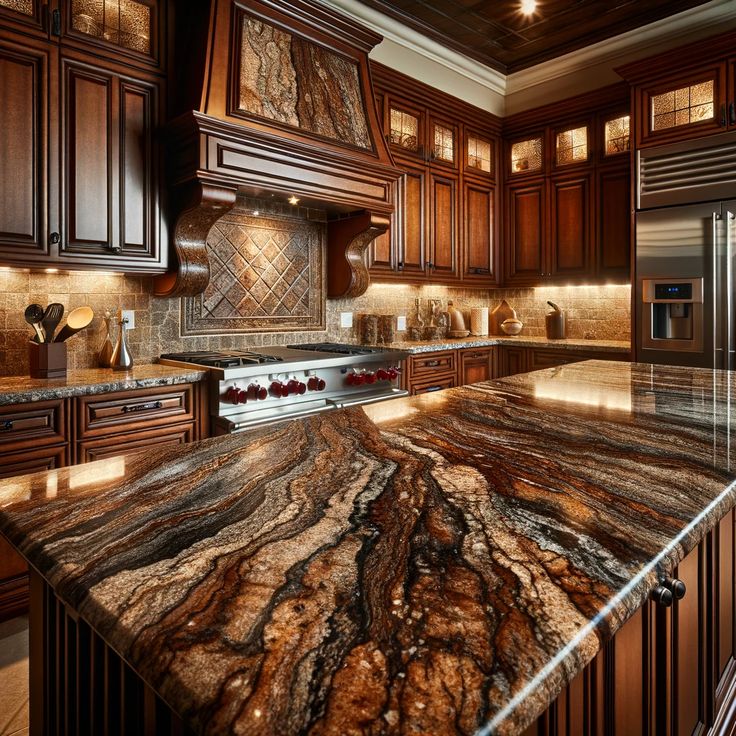
Types of Counter Tops For Kitchen
Picking the right countertop for your kitchen can totally change the vibe. Countertops aren’t just for show—they’re where the magic happens. With so many choices out there, it’s good to know what each type brings to the table (literally). Let’s dive into the different countertop options.
Granite Countertops
Granite is a favorite. It’s tough and looks amazing. Each slab is unique, with its own colors and patterns. Granite can take the heat, which is a big plus in the kitchen. But remember, it needs sealing now and then to keep it looking great and prevent stains.
Quartz Countertops
Quartz countertops are a mix of natural quartz and resin. They don’t stain or harbor bacteria because they’re non-porous. You can find them in lots of colors and patterns. Plus, they’re easier to maintain than granite.
Marble Countertops
Marble screams luxury. Its veining and smooth finish are just beautiful. It’s heat-resistant, which is great. But it can scratch and stain, so regular sealing is a must. Bakers love it for its cool surface.
Laminate Countertops
On a budget? Laminate countertops could be your pick. They come in many styles and colors. Made from paper and resin, they’re not as tough as stone. They can scratch and burn, but they’re easy to install and replace.
Solid Surface Countertops
These are made from acrylic or polyester resins. They give a seamless look with built-in sinks and backsplashes. Non-porous and easy to repair, they can mimic stone or other materials.
Butcher Block Countertops
If you love a warm, cozy kitchen, consider butcher block. Made from wood, they’re perfect for food prep. They need regular oiling to stay in good shape. Got a scratch or stain? You can sand it down.
Concrete Countertops
For a modern, industrial look, go with concrete. You can customize them with colors and textures. They’re tough but can crack. Sealing is needed to protect them from stains and water damage.
Stainless Steel Countertops
Seen in professional kitchens, stainless steel countertops are durable and heat-resistant. They’re easy to clean and give a sleek, modern vibe. But they can show fingerprints and scratches.
Quick Pros And Cons
| Type | Pros | Cons |
|---|---|---|
| Granite | Durable, unique, heat-resistant | Needs sealing, can be pricey |
| Quartz | Non-porous, low maintenance, lots of colors | Can be expensive |
| Marble | Luxurious, heat-resistant, smooth | Can scratch, needs sealing |
| Laminate | Budget-friendly, many styles | Less durable, can scratch and burn |
| Solid Surface | Seamless, easy to repair, non-porous | Can be damaged by heat |
| Butcher Block | Warm, great for prep, can be sanded | Needs regular oiling, can stain |
| Concrete | Customizable, modern look | Can crack, needs sealing |
| Stainless Steel | Durable, heat-resistant, sleek | Shows fingerprints, can scratch |
Choose Right Style For Counter tops
Choosing the right kitchen counter top can really change your cooking space. It’s a chance to show off your style. The counter top you pick will set the vibe for your whole kitchen. So, it’s important to find a design that fits your home. Let’s look at some popular styles: Modern Designs, Rustic Looks, and Classic Options.
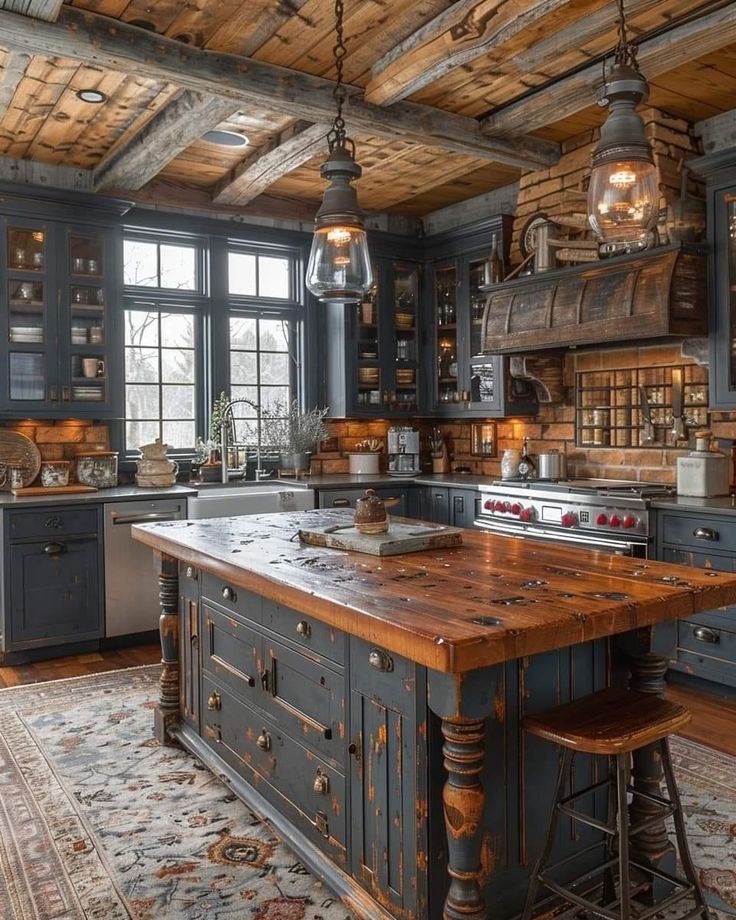
Modern Designs
If you like clean lines and a simple look, modern kitchen counter tops are a great choice. They often use materials like quartz, stainless steel, and concrete. Each one has its own perks:
-
Quartz: Non-porous, durable, and comes in many colors.
-
Stainless Steel: Heat-resistant, easy to clean, and gives a professional look.
-
Concrete: Customizable, can be tinted or textured, and very sturdy.
Modern designs also have smart storage and built-in appliances. Some cool features include:
-
Waterfall edges: Makes the countertop flow to the floor.
-
Integrated sinks: Seamless look and easier to clean.
-
Neutral colors: Makes the space feel bigger and more open.
Picking modern designs can make your kitchen look sleek and up-to-date.
Rustic Looks
Rustic kitchen counter tops bring a warm, cozy feel to your kitchen. This style is perfect if you love natural beauty and a homey vibe. Common materials for rustic countertops include:
-
Wood: Adds warmth, can be refinished, and has unique grain patterns.
-
Natural Stone: Each slab is unique and brings an earthy feel.
-
Butcher Block: Great for food prep, durable, and easy to maintain.
Rustic looks often feature distressed finishes and handcrafted details. Some elements that enhance the rustic style are:
-
Live-edge wood: Keeps the natural shape of the wood for a raw, organic look.
-
Reclaimed materials: Adds history and character to the space.
-
Matte finishes: Provides a more natural, less polished appearance.
Rustic counter tops create a welcoming and timeless kitchen environment.
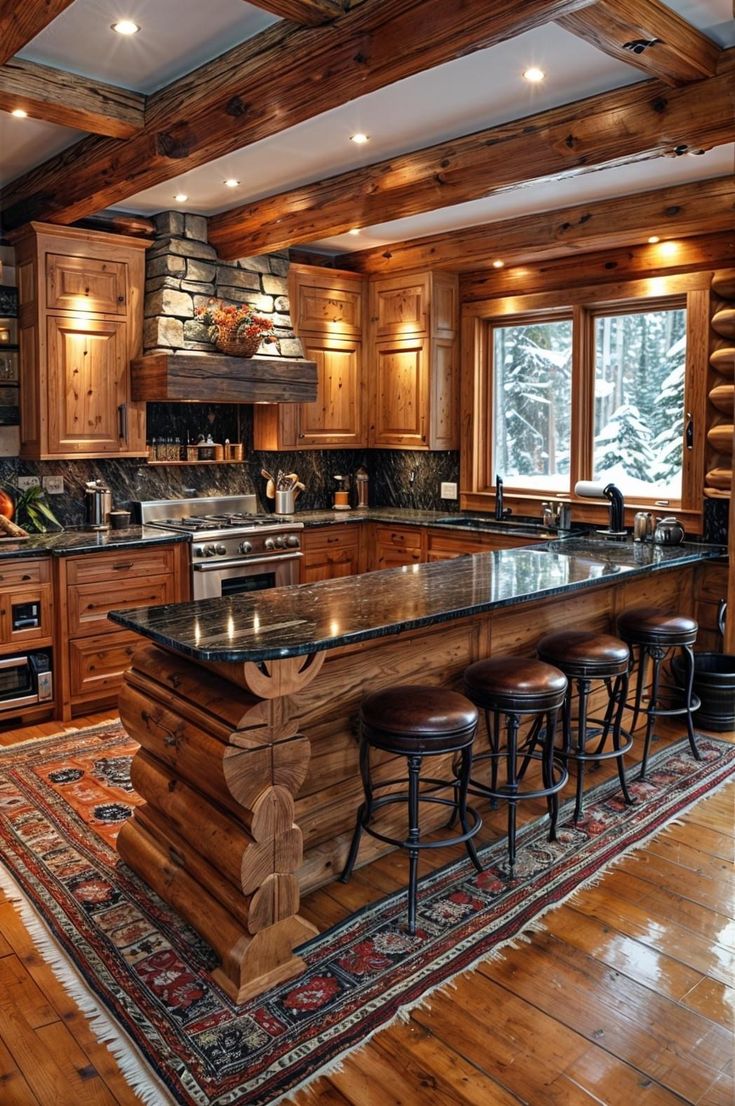
Classic Options
Classic kitchen counter tops never go out of style. They offer a timeless look that works well with different kitchen designs. Popular materials for classic countertops include:
-
Marble: Elegant, heat-resistant, and adds a luxurious touch.
-
Granite: Durable, available in many colors, and easy to maintain.
-
Tile: Versatile, comes in various styles, and easy to repair.
Classic options often focus on balance and symmetry. Some features that define classic countertops are:
-
Beveled edges: Adds a touch of elegance and sophistication.
-
Understated colors: Easy to match with other kitchen elements.
-
Glossy finishes: Gives a polished and clean look.
Choosing classic countertops ensures your kitchen stays stylish and functional for years to come.
Color And Finishing Options For Counter Top
Picking countertops for your kitchen is more than just about the material. The color and finish can change the whole vibe of your space. You can go for neutral tones that always look classy or bold colors that make a statement. And don’t forget about the finish – matte or glossy – it really makes a difference.
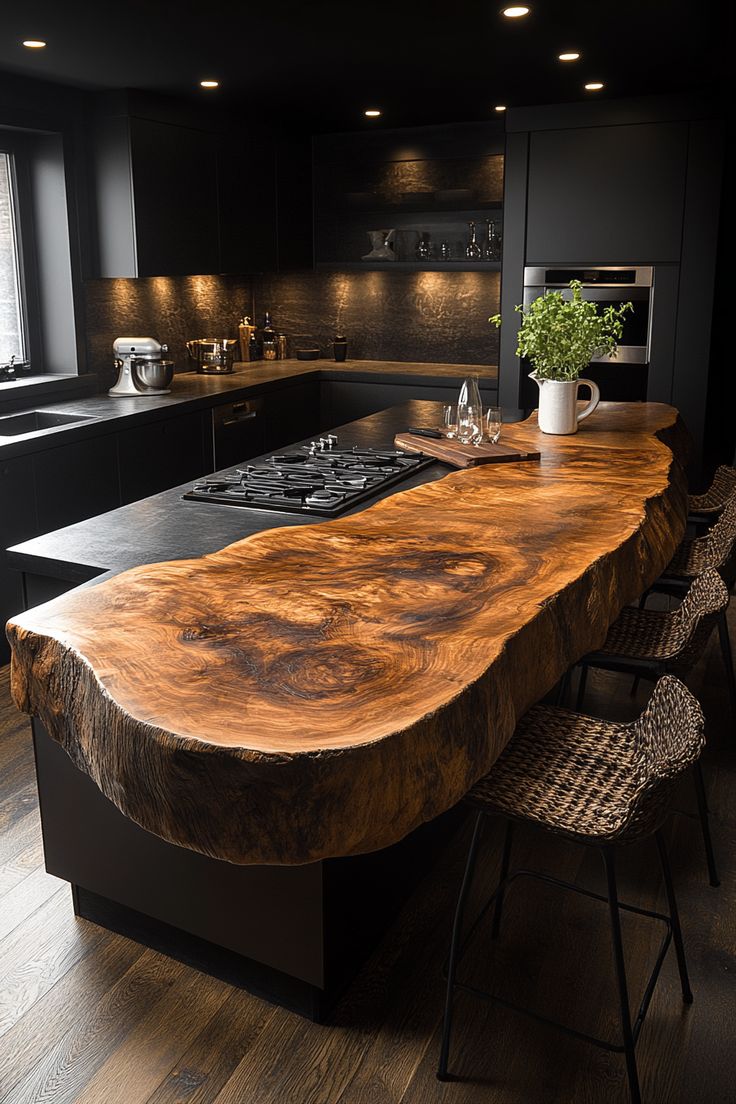
Neutral Tones
Neutral tones are super popular because they work with almost any kitchen style. They give a clean, timeless look.
-
White – Makes the kitchen look bright and spacious.
-
Beige – Adds warmth and matches many cabinet colors.
-
Gray – Looks modern and sleek, great with stainless steel.
-
Black – Bold and elegant, plus it hides stains well.
Neutral tones are great if you want a classic look. Plus, you can change other parts of your kitchen decor without worrying about the countertops.
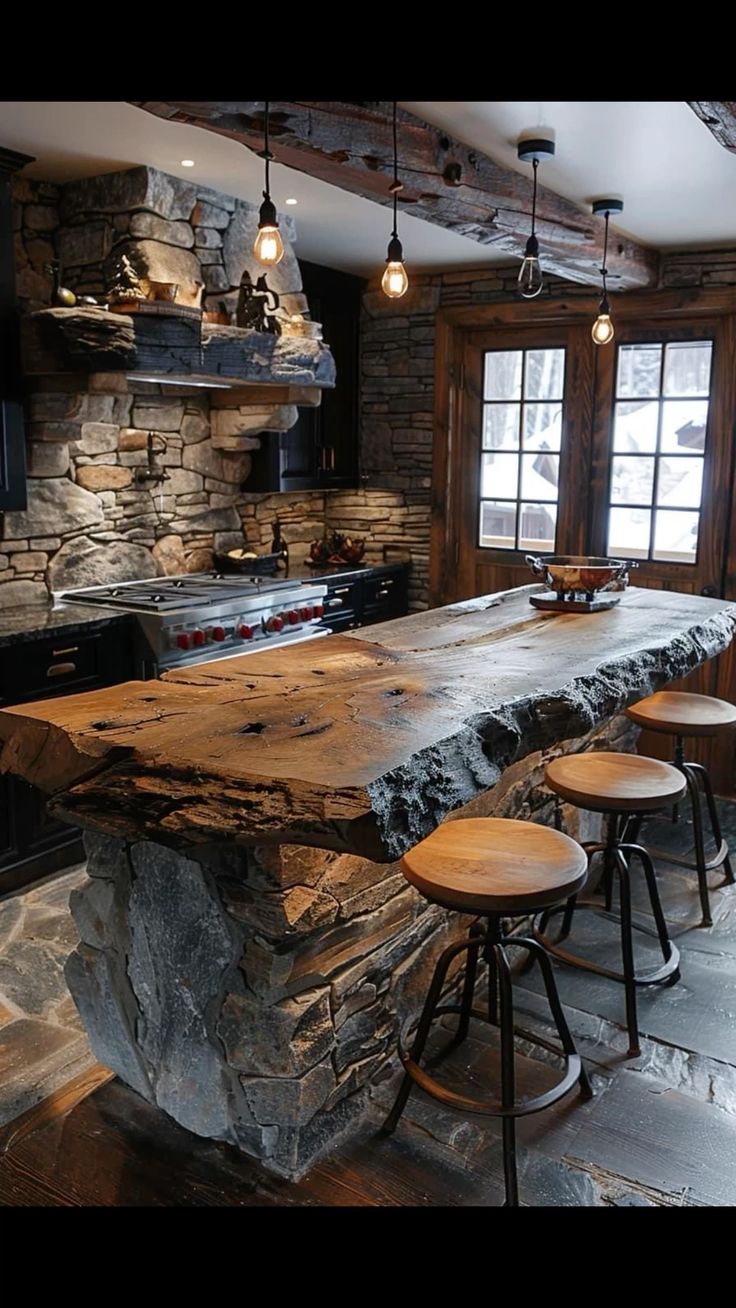
Bold Colors
Want your kitchen to stand out? Bold colors can add a lot of personality and make your kitchen the heart of your home.
-
Red – Full of energy, great for a lively kitchen.
-
Blue – Calming, perfect for a coastal or cottage-style kitchen.
-
Green – Fresh and natural, ideal for a nature-inspired kitchen.
-
Yellow – Cheerful and bright, perfect for a sunny kitchen atmosphere.
Bold colors can really transform your kitchen. They work well with simple designs where the countertops take center stage.
Matte Vs. Glossy
The finish of your countertops can change how your kitchen looks and feels. You can choose between matte and glossy.
-
Matte – Soft and natural look, hides fingerprints and smudges, reduces glare.
-
Glossy – Shiny and reflective, brightens the space, makes bold colors pop, easy to clean.
Both finishes have their perks. It all depends on what you like and the style of your kitchen.
Maintenance Tips For Counter Tops For Kitchen
Let’s talk about something super important in your kitchen – countertops. They’re not just for show. They’re where you prep your food and they can really pull your kitchen’s look together. So, how do you keep them both beautiful and functional? Here are some simple tips.
Also Read: Expert Kitchen Cleaning Tips For Spotless Space
Cleaning Techniques
First things first – cleaning. Different countertops need different care:
-
Granite: Use warm water and mild dish soap. Steer clear of harsh chemicals.
-
Quartz: A gentle household cleaner works best. No abrasive pads.
-
Marble: Go for a damp cloth and a pH-neutral cleaner. No acidic stuff like vinegar.
For daily cleaning, follow these steps:
-
Wipe the surface with a soft cloth.
-
If needed, use a gentle cleaner.
-
Dry with a clean towel to avoid water spots.
Got stubborn stains? Mix baking soda and water into a paste. Apply, let it sit, then gently scrub and rinse.

Sealing Stone Surfaces
Granite and marble countertops need sealing to keep stains away. Here’s how:
-
Pick the right sealer: Make sure it’s good for your stone type.
-
Clean the surface: The countertop should be clean and dry before sealing.
-
Apply the sealer: Use a cloth to spread it evenly. Follow the product instructions.
-
Let it sit: Allow the sealer to soak in for the recommended time.
-
Wipe off excess: Use a clean cloth to remove any extra sealer.
Do this every 6 to 12 months to keep your countertops protected.
Preventing Damage
Want your countertops to last? Here’s what you can do:
-
Use cutting boards: This avoids scratches.
-
Keep hot items off: Use trivets or heat pads to prevent heat damage.
-
Clean spills right away: Wipe up spills fast to stop stains.
-
Avoid harsh chemicals: No bleach or ammonia-based cleaners.
Extra tip? Use placemats and coasters. They help prevent scratches and stains from utensils and glasses. There you have it. Follow these easy steps and your kitchen countertops will stay in top shape.
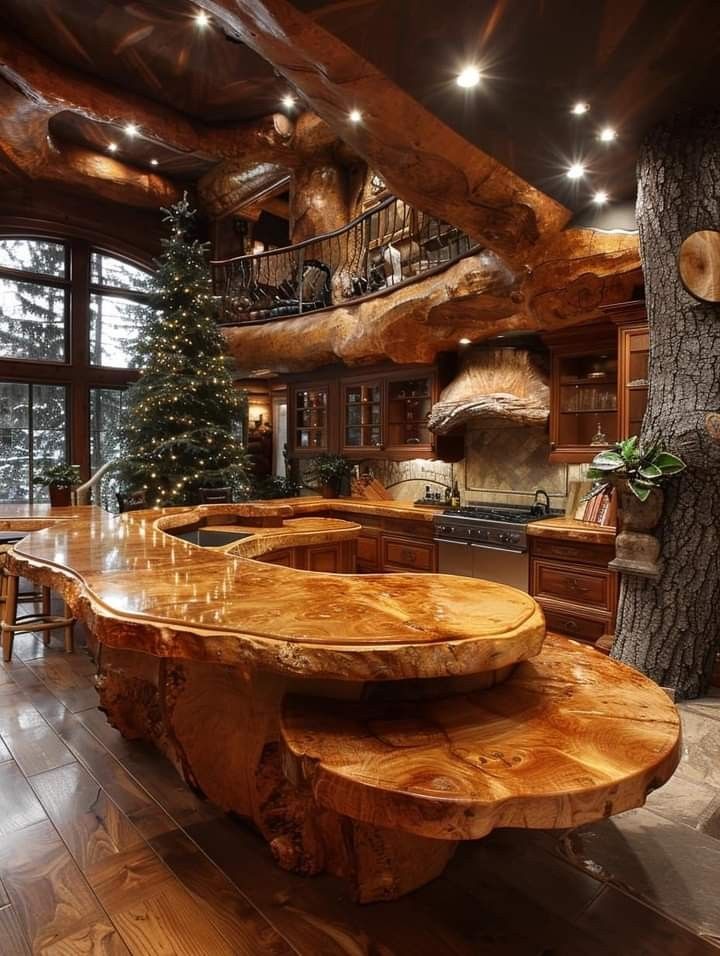
Cost Considerations
Choosing the right countertop for your kitchen involves many factors, with cost being one of the most important. Different materials and styles come with various price tags. Knowing what you can afford and what fits your needs helps make the best decision. Here’s a look at cost considerations for kitchen countertops.
Budget-friendly Choices
For those on a tight budget, several countertop options offer great value without sacrificing quality. These choices are both affordable and durable.
Laminate Countertops:
- Cost: $10 – $40 per square foot
- Variety of colors and patterns
- Easy to clean
- Can mimic the look of more expensive materials
Butcher Block Countertops:
- Cost: $30 – $60 per square foot
- Warm, natural look
- Great for food preparation
- Requires regular maintenance

Tile Countertops:
- Cost: $10 – $50 per square foot
- Customizable with various designs and colors
- Heat resistant
- Grout lines can be hard to clean
Mid-range Options
Mid-range countertops offer a balance between cost and quality. These options are more durable and stylish than budget-friendly choices, yet still affordable.
Granite Countertops:
- Cost: $50 – $100 per square foot
- Natural stone with unique patterns
- Heat and scratch resistant
- Requires sealing to prevent stains
Solid Surface Countertops:
- Cost: $50 – $120 per square foot
- Seamless look with integrated sinks
- Non-porous and easy to clean
- Can be scratched but is repairable
Quartz Countertops:
- Cost: $70 – $120 per square foot
- Engineered stone with consistent patterns
- Stain, scratch, and heat resistant
- Low maintenance
Luxury Selections
Luxury countertops are the top-tier choices for those willing to invest more for premium quality and style. These materials are not only beautiful but highly durable.
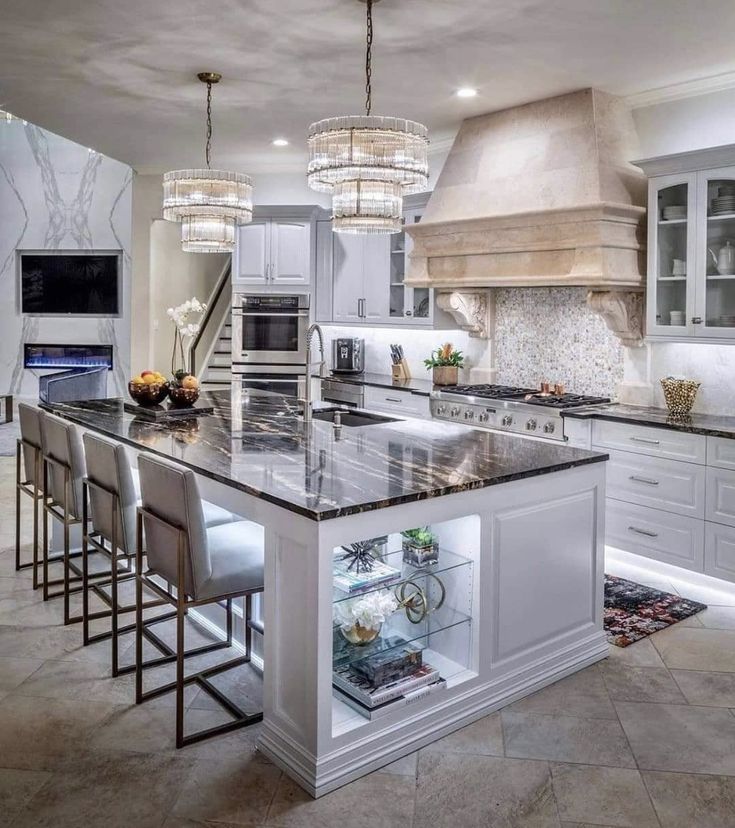
Marble Countertops:
- Cost: $100 – $200 per square foot
- Elegant and timeless appearance
- Heat resistant but prone to scratching
- Requires regular sealing
Soapstone Countertops:
- Cost: $70 – $120 per square foot
- Rich, deep color that darkens over time
- Heat and stain resistant
- Soft surface can scratch but is easily repairable
Recycled Glass Countertops:
- Cost: $50 – $125 per square foot
- Eco-friendly with a unique look
- Durable and low maintenance
- Variety of colors and patterns
DIY Vs. Professional Installation of Kitchen Counter Tops
When upgrading your kitchen, choosing and installing the right countertop is crucial. This decision often boils down to DIY vs. professional installation. Both options have their own advantages and drawbacks. Understanding these can help you make the best choice for your kitchen project.
Pros Of DIY
DIY countertop installation can be a rewarding experience. Here are some benefits:
- Cost Savings: Avoid labor costs by installing the countertop yourself. This can significantly reduce the overall expense.
- Control: Have complete control over the project. You can work at your own pace and adjust plans as needed.
- Satisfaction: The feeling of accomplishment is immense when you complete a project on your own.
- Learning Experience: Gain valuable skills and knowledge that can be applied to future projects.
Consider a table to compare the cost savings:
| Expense | DIY Installation | Professional Installation |
|---|---|---|
| Materials | $500 | $500 |
| Labor | $0 | $300 |
| Tools | $100 | $0 |
| Total | $600 | $800 |
DIY installation is ideal for those who enjoy hands-on projects. It’s also suitable if you have some experience with tools. Remember, even though it can be cost-effective, it’s important to ensure you have the right skills and tools for the job.
When To Hire Experts
Professional installation offers peace of mind and guarantees quality work. Here are situations where hiring experts is the best option:
- Complex Designs: For intricate or custom designs, professionals have the expertise to handle the complexity.
- High-Value Materials: Expensive materials like granite or marble require precise cutting and installation. Mistakes can be costly.
- Time Constraints: If you’re on a tight schedule, professionals can complete the job quickly and efficiently.
- Warranty: Professional work often comes with a warranty, ensuring any issues are addressed without extra cost.
Consider hiring experts in the following scenarios:
- Lack of Experience: If you have little to no experience with countertop installation.
- Special Tools Required: If the job requires specialized tools you don’t have.
- Risk of Damage: When the risk of damaging expensive materials is high.
- Building Codes: Ensuring the installation meets local building codes and regulations.
Professional installation can be more expensive but ensures a high-quality finish. It also saves time and reduces the risk of costly mistakes. This option is ideal for those who want a hassle-free experience and a perfect result.
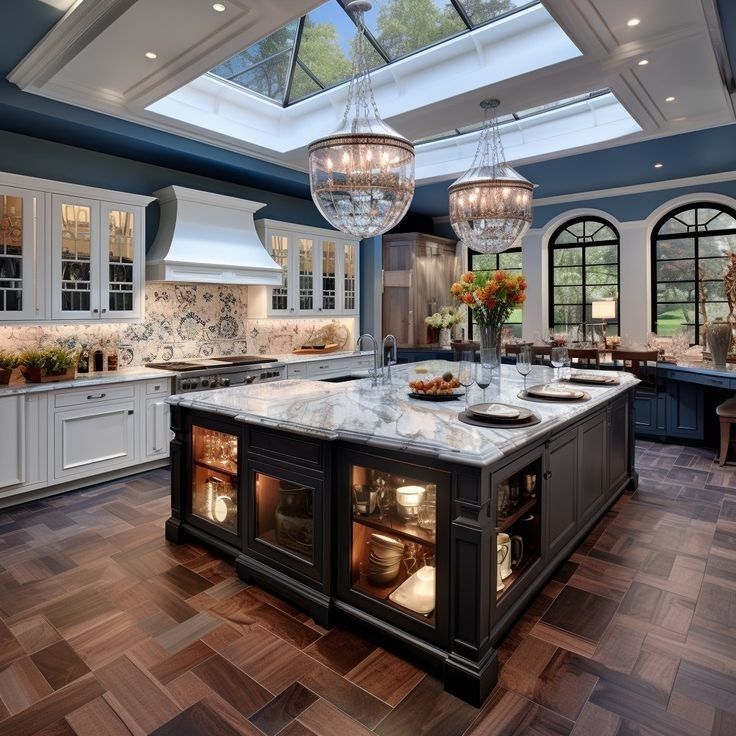
Trends In Kitchen Counter Tops
Choosing the right countertop for your kitchen can change its entire look and feel. Modern trends in kitchen countertops emphasize style, functionality, and sustainability. This blog post explores the latest trends in kitchen countertops, focusing on sustainable materials, smart technology, and unique textures.
Sustainable Materials
Eco-friendly choices are becoming popular in kitchen countertops. Homeowners want materials that are kind to the environment.
Several sustainable materials are available:
- Recycled Glass: Made from recycled glass bottles and jars. These countertops are colorful and durable.
- Bamboo: A fast-growing, renewable resource. Bamboo countertops are strong and have a warm, natural look.
- Reclaimed Wood: Wood from old buildings and barns. This option gives a rustic charm and reduces waste.
Choosing sustainable materials helps reduce the carbon footprint and supports a healthier planet. It’s a trend that aligns with the growing awareness of environmental issues.
Smart Technology
Technology is now a part of modern kitchen countertops. Smart countertops offer various features that make cooking and cleaning easier.
Some popular smart countertop features:
- Built-in Charging Stations: Charge your devices while cooking.
- Integrated Scales: Measure ingredients directly on the countertop.
- Touch Controls: Control appliances with a touch on the countertop surface.
Examples of smart technology in countertops:
- Corian Charging Surface: A surface that wirelessly charges devices.
- Viking Range Digital Countertop: Features built-in scales and touch controls.
Smart technology in countertops makes the kitchen more efficient and user-friendly. It adds a modern touch to traditional cooking spaces.
Unique Textures
Textures play a crucial role in the look and feel of kitchen countertops. Unique textures add character and depth to the kitchen.
Popular texture trends include:
- Matte Finishes: Smooth, non-reflective surfaces. They give a modern and elegant look.
- Leathered Granite: A soft, textured finish. It adds a rustic and natural feel.
- Concrete: Industrial and raw. Concrete countertops can be polished or left rough.
Unique textures make countertops not only functional but also a statement piece in the kitchen. They offer a tactile experience that enhances the overall design.
Also Read: 7 Practical Kitchen Organizing Tips
Counter Top Functionality
Counter tops are the heart of any kitchen. They provide space for meal preparation, dining, and storage. The functionality of a countertop is crucial. You need a surface that can withstand daily wear and tear. Let’s explore the key aspects of countertop functionality.
Durability
Durability is essential for kitchen countertops. They should endure frequent use and last for years. Various materials offer different levels of durability. Here are some common options:
- Granite: Highly durable and resistant to scratches and heat.
- Quartz: Very strong and less prone to staining than natural stone.
- Marble: Elegant but more prone to scratches and stains.
- Laminate: Affordable and available in many designs but less durable.
Durability depends on both the material and maintenance. Regular sealing of natural stones like granite and marble can enhance their lifespan. Quartz requires less maintenance but still benefits from proper care. Laminate, while cost-effective, may need more frequent replacement.
Consider your kitchen’s usage. For heavy-duty cooking, granite or quartz may be better. For a budget-friendly option, laminate works well. Choose wisely to ensure your countertop stands the test of time.
Heat Resistance
Heat resistance is vital for kitchen countertops. You often place hot pots and pans directly on the surface. Not all materials handle heat the same way. Here’s a quick comparison:
| Material | Heat Resistance |
|---|---|
| Granite | High |
| Quartz | Moderate |
| Marble | Moderate |
| Laminate | Low |
Granite is excellent for heat resistance. You can place hot cookware directly on it without damage. Quartz can handle moderate heat but may discolor with very high temperatures. Marble, while beautiful, is less heat-resistant and can suffer from heat marks. Laminate is the least heat-resistant and can warp or scorch.
Using trivets or hot pads can protect less heat-resistant surfaces. This practice extends the life of your countertop and maintains its appearance. Investing in a heat-resistant countertop can save you from frequent repairs and replacements.
Scratch Resistance
Scratch resistance is another important factor. Kitchen countertops face constant contact with knives, utensils, and other sharp objects. Not all materials offer the same protection against scratches. Here’s a look at some common choices:
- Granite: Highly scratch-resistant and great for cutting and chopping.
- Quartz: Also very resistant to scratches and durable for heavy use.
- Marble: Prone to scratches and requires careful handling.
- Laminate: Easily scratched and needs protective measures.
Granite and quartz are top choices for scratch resistance. They can handle daily kitchen activities without showing wear. Marble, while stunning, needs more care to avoid scratches. Laminate is less durable and may show scratches more easily.
Using cutting boards and avoiding direct contact with sharp objects can help. These practices protect your countertop and keep it looking new. Choose a scratch-resistant material if your kitchen sees heavy use. This selection ensures your countertop remains functional and attractive for years to come.
Frequently Asked Questions
What Are The Best Kitchen Countertop Materials?
Granite, quartz, and marble are popular choices. They are durable, stylish, and increase home value. Each material has unique benefits.
How Do I Maintain My Kitchen Countertops?
Regular cleaning with mild soap and water is essential. Avoid harsh chemicals. For stone countertops, periodic sealing is recommended.
Are Quartz Countertops Better Than Granite?
Quartz countertops are non-porous, stain-resistant, and low-maintenance. Granite is natural and unique. Both have their advantages.
How Much Do Kitchen Countertops Cost?
Cost varies by material. Granite and quartz range from $50 to $200 per square foot. Laminate is cheaper.
Conclusion
Choosing the right countertop enhances your kitchen’s beauty and functionality. Each material offers unique benefits and fits different needs. Granite provides durability. Quartz offers easy maintenance. Marble adds elegance. Laminate is budget-friendly. Consider your lifestyle and preferences when selecting. A well-chosen countertop elevates your kitchen experience.
Make your kitchen a place you love. The right countertop makes a big difference. Enjoy your new kitchen space.

